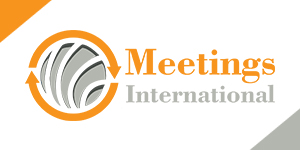Scientfic Sessions:
Virtual care is the intersection between digital technologies such as telehealth, connected medical devices, remote monitoring, and, healthcare delivery systems. During the COVID-19 pandemic, providers turned to virtual care solutions in the form of remote patient monitoring and telehealth to be able to continue to meet the healthcare needs of their patients as caseloads spiked all over the world and threatened to overrun hospital capacity
Remote patient monitoring (RPM) is a technology to enables monitoring of patients outside of conventional clinical settings, such as in the home or in a remote area, which may increase access to care and decrease healthcare delivery costs. RPM involves the constant remote care of patients by their physicians, often to track physical symptoms, chronic conditions, or post-hospitalization rehab.
Personalized medicine, also referred to as precision medicine, is a medical model that separates people into different groups—with medical decisions, practices, interventions and/or products being tailored to the individual patient based on their predicted response or risk of disease.
Telepsychiatry is a form of telemedicine that uses telephone or video conferencing tools to provide psychiatric services. As with in-person psychiatric treatment, telepsychiatry providers can evaluate and diagnose, provide therapy, and prescribe medication. Psychotherapy has effectively treated a wide range of mental health conditions and is offered in both inpatient and outpatient settings. During talk therapy, a person or group discusses their issues with a therapist who can help them process their feelings and learn new coping skills
Blockchain's distributed ledger technology facilitates the secure transfer of patient medical records, strengthens healthcare data defenses, manages the medicine supply chain and helps healthcare researchers unlock genetic code
Digital therapeutics, a subset of digital health, are evidence-based therapeutic interventions driven by high-quality software programs to prevent, manage, or treat a medical disorder or disease.
Legal and ethical issues concerned important aspects such as informed consent and autonomy (87%), patient privacy (78%) and confidentiality (57%), data protection and security (74%), malpractice and professional liability/integrity (70%), and equity of access.
This category includes the following subcategories AI stands for Artificial Intelligence, Psychological Technology, and Sleep Tech.
IoT for Hospitals - Apart from monitoring patients health, there are many other areas where IoT devices are very useful in hospitals. IoT devices tagged with sensors are used for tracking the real-time location of medical equipment like wheelchairs, defibrillators, nebulizers, oxygen pumps, and other monitoring equipment
Patient Engagement Solutions aim at opening the door to discussion between a patient and a healthcare provider. As a result, patients are able to schedule and pay via a mobile phone, consider what kind of treatments they prefer, and keep informed about the status of the course and their health condition.

